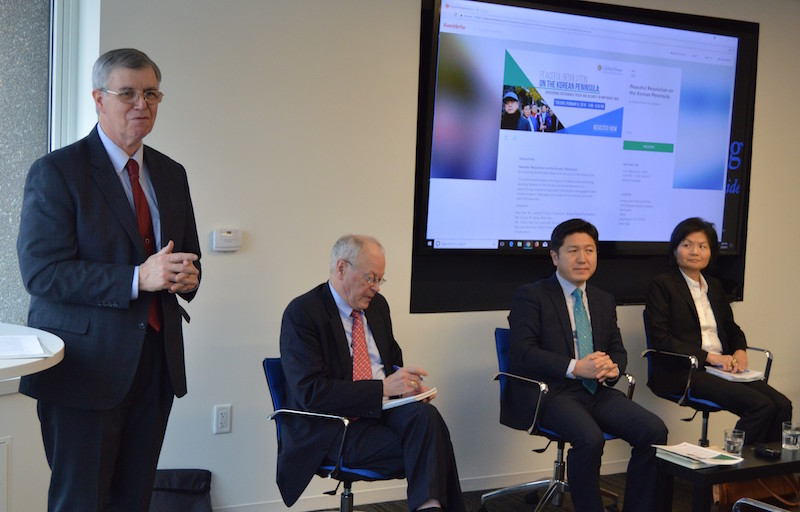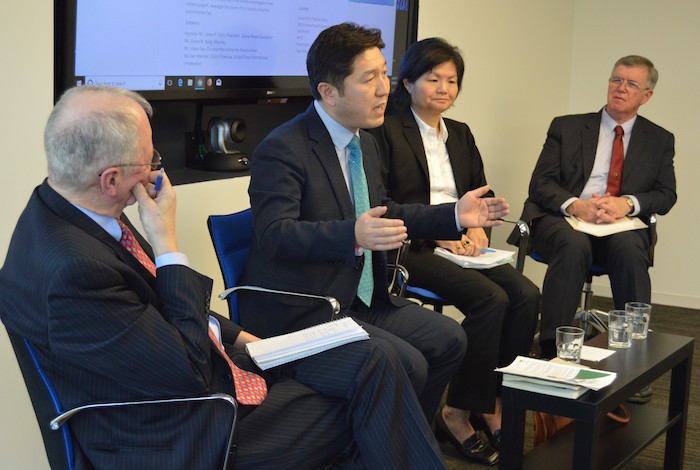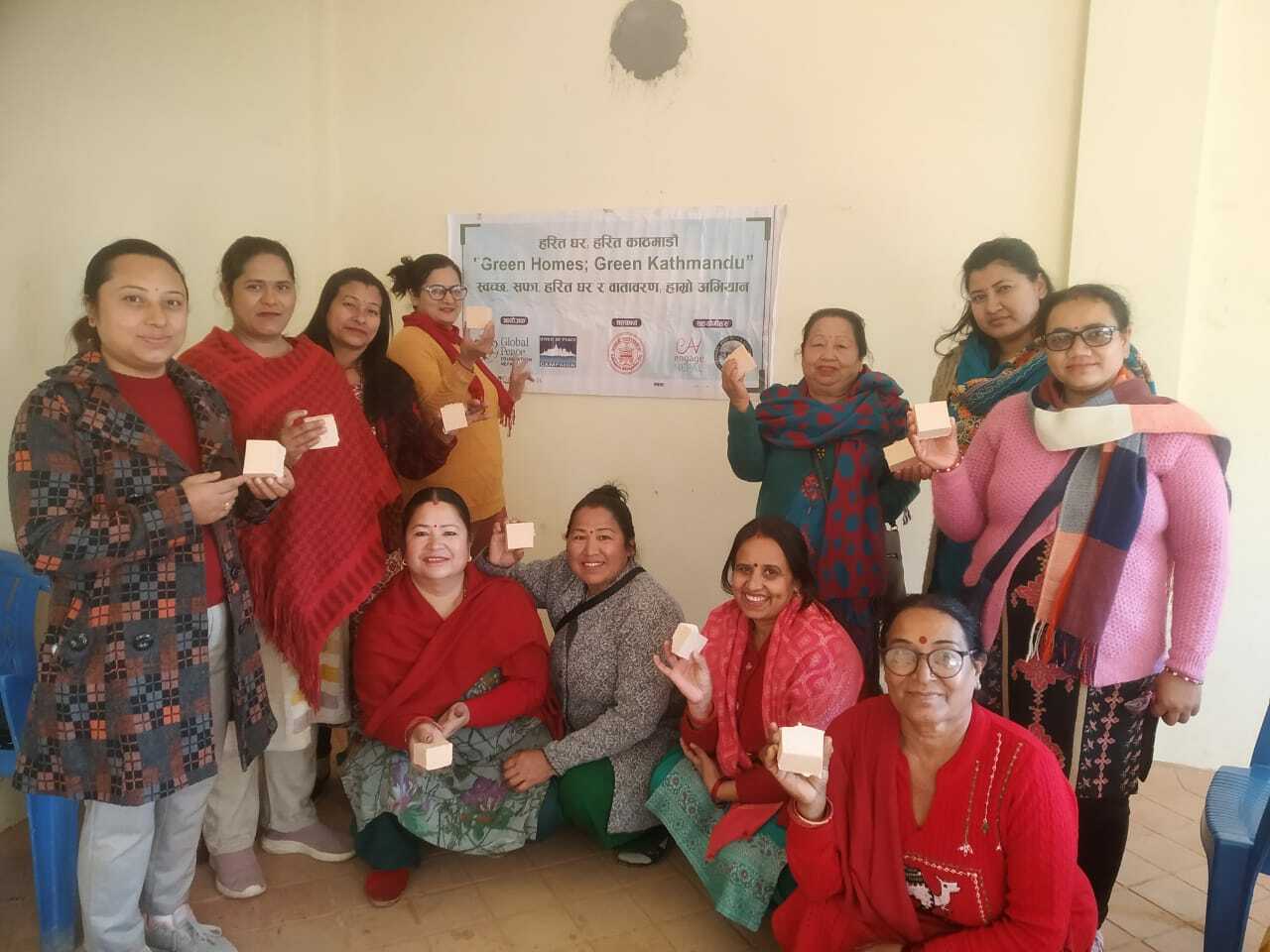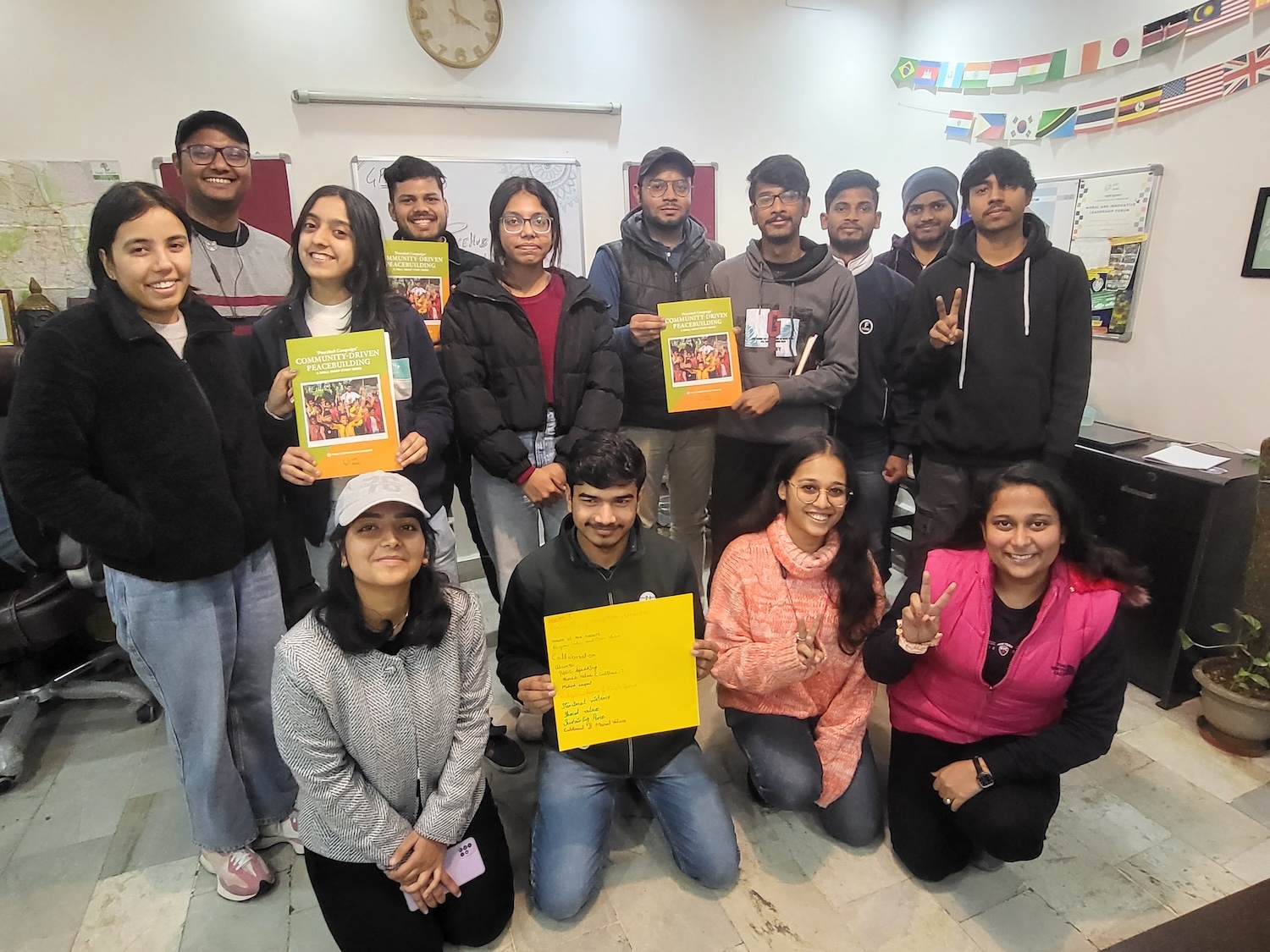Global Peace Foundation, Action for Korea United examine unification as a “third way” toward resolving the crisis on the Korean Peninsula at Alliance for Peacebuilding briefing in Washington.
WASHINGTON, DC, February 6— Decades of political and diplomatic efforts have had little influence in deterring North Korea’s drive to acquire nuclear weapons or moderating its extreme human rights abuses. Policymakers are confronting the increasingly stark choice of going to war to forcibly disarm the rogue regime or accepting a nuclear-armed North Korea and its capacity to threaten peace and security around the globe.
At a February 6 briefing at the Alliance for Peacebuilding in Washington, Global Peace Foundation International President James Flynn and Action for Korea United Co-Chairman Inteck Seo advanced a third way: a unified, nonaligned Korea that can resolve the nuclear threat and become an engine of economic growth for the benefit of all Koreans.

GPF International President James Flynn speaks at the Alliance for Peacebuilding Forum in Washington D.C
Mr. Flynn said both Koreas historically have been and remain committed to unification. The Korean War instigated by the North was a forced attempt to reunify the peninsula, he noted. Recent speeches by North Korean leader Kim Jong Un specifically call for unification, and the South Korean Constitution similarly “seeks to carry out a policy of peaceful unification based on the principles of freedom and democracy.”
Flynn said the nuclear crisis, growing awareness of the extreme human rights violations in the North, the hosting of the 2018 Winter Olympics in PyeongChang, just 50 miles from the heavily fortified border with North Korea, and the approaching centennial of the 1919 Independence Movement presented an “urgent window of opportunity” to resolve the Cold War division.
Flynn stressed the importance of Korean heritage—in particular the ancient ethos of Hongik Ingan or “living for the benefit of humanity”—in bridging the 70-year division. The unification movement must be “Korean-led,” Flynn said, adding that the GPF-backed One Korea Global Campaign seeks to enlist international support for this process, much as global awareness and action lead to the collapse apartheid in South Africa.
Inteck Seo said South Korean attitudes presented another obstacle. “If the South is divided and unclear about unification there is little hope to unify with the North,” he warned.

Co-Chairman of Action for Korea United Inteck Seo presents reality of the attitude toward Korean reunification
“Things have changed dramatically in the last 30 years,” Seo added. “North Koreans are watching South Korean movies and TV dramas and listening to K-pop, and even China supporting UN sanctions against North Korea. Informal markets are increasingly flourishing, and information coming in and out of North Korea is expanding. We need to engage North Korea with people power.”
Action for Korea United is a coalition of more than 800 civil society organizations, is advancing awareness and support for unification through public education and humanitarian campaigns, expert forums, and care for North Korean defectors.
A third panelist, Washington attorney and Korea specialist Grace Kang, stressed that “legitimacy” was an essential benchmark for recognition and participation in the international system. Comparing the levels of prosperity, individual rights and respect for international law, Kang said it was clear which government on the Korean peninsula was legitimate.
“If Kim refuses to reform and continues its repression and criminal activity, the UN General Assembly should de-recognize the DPRK and recognize the ROK as the only legitimate government on the Korean peninsula,” she said.
The Global Peace Foundation has hosted major international forums on unification with Korea experts in Washington and Seoul since 2012 and through dedicated tracks at Global Peace Conventions in Atlanta (2012), Malaysia (2013), Asunción, (2014), and Manila (2017).
The Alliance for Peacebuilding is the institutional home for the peacebuilding community – a network of over 100 organizations working to resolve conflict and create sustainable peace in 153 countries. Members include some of the world’s largest development organizations, most innovative academic institutions, and the most powerful peacebuilding groups.



